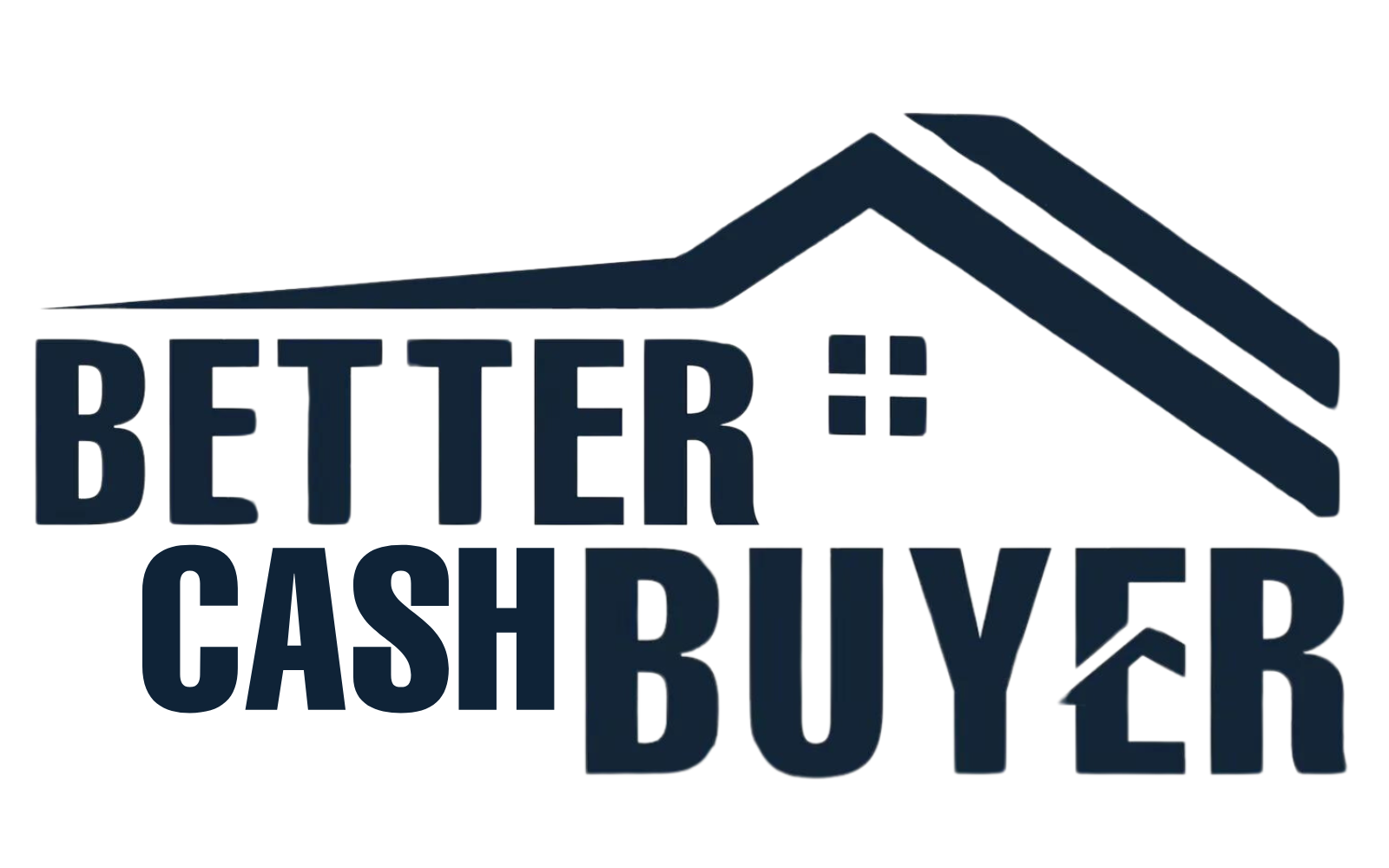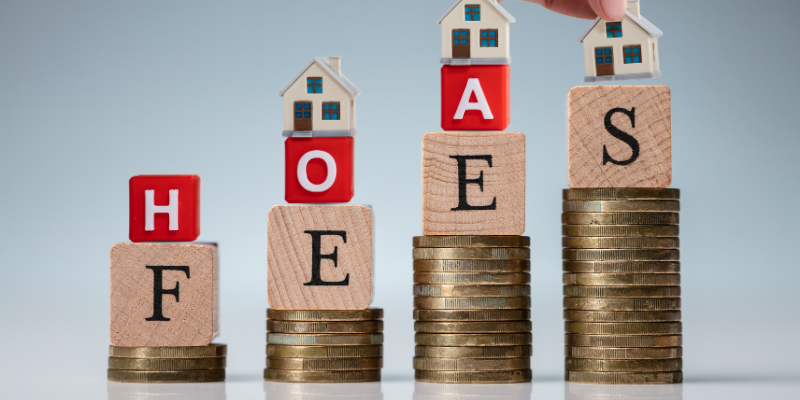
Understanding HOA Fees: A Comprehensive Guide for Homebuyers
When purchasing a property in Newark, NJ, it’s essential for homebuyers to thoroughly understand the intricacies of Homeowners Association (HOA) fees, particularly when approaching the closing of a real estate transaction. These fees are recurring charges that cover the maintenance and management of shared community spaces and amenities such as pools, landscaping, and security services.
Prospective buyers must review the HOA’s financial documents to comprehend their future financial obligations fully. At closing, responsibility for any unpaid dues typically transfers from seller to buyer, making it imperative that buyers verify that all fees are current to avoid unexpected liabilities.
Additionally, understanding any potential increases in HOA fees or special assessments planned by the association can impact long-term affordability and should be factored into budgetary considerations. Buyers must also ensure they receive all necessary documentation regarding HOA rules and regulations, which can significantly influence lifestyle and property use within the community.
If you’re selling a home in a Newark community with HOA oversight, disclosing fee structures and ensuring all dues are settled to prevent closing delays is important. Better Cash Buyer in Newark can help guide you through a smooth sale by working directly with HOA boards and buyers to resolve any issues upfront.
Key Factors Affecting HOA Fees and Their Calculation
In Newark, NJ, real estate transactions, understanding HOA fee responsibility at closing involves recognizing the key factors that affect these fees and their calculation. One crucial factor is the size and scope of the amenities the homeowners association offers, as larger or more luxurious amenities often lead to higher fees.
The age and condition of the property can also influence HOA fees; older buildings may require more maintenance, thereby increasing costs. Additionally, the financial health of the HOA plays a crucial role; associations with substantial reserve funds may have more stable fees than those needing additional funding for repairs or improvements.
The number of units sharing expenses can impact individual fee amounts, as fewer units can mean higher per-unit costs. It’s also essential to consider any special assessments that might be levied for unexpected expenses or major projects, which can significantly alter fee calculations during a real estate transaction in Newark.
Understanding these elements helps buyers navigate their responsibilities related to HOA fees effectively at closing.
The Role of HOA Fees in Real Estate Transactions
In Newark, NJ, understanding the role of HOA fees in real estate transactions is crucial for buyers and sellers. Homeowners Association (HOA) fees are recurring dues that fund the maintenance and management of common areas within a community, such as landscaping, amenities, and security.
When closing on a property in Newark that is part of an HOA, it’s essential to clarify who is responsible for these fees at different transaction stages. Typically, the seller must ensure that all HOA payments are current up to the closing date to avoid liens or complications.
However, it’s equally essential for the buyer to understand their future financial responsibilities regarding ongoing HOA dues after taking ownership. This includes familiarizing themselves with special assessments or potential fee increases that could affect their budgeting plans.
In many cases, real estate contracts in Newark will specify how any outstanding HOA fees or prorated amounts will be handled at closing, ensuring a smooth transition between parties. Therefore, both parties should review these terms carefully and consult with their real estate agents or attorneys to avoid disputes over HOA fee responsibility during the transfer of property ownership.
If you’re unsure how HOA fees may impact your upcoming sale or purchase, don’t hesitate to reach out to us for personalized guidance and support tailored to Newark transactions.
Who Is Responsible for Paying HOA Fees at Closing?
In Newark, NJ, understanding who pays HOA fees at closing is crucial in real estate transactions. Typically, the responsibility for these homeowners’ association fees at closing falls on both the buyer and the seller, depending on the prorated period.
The seller is usually responsible for covering any outstanding HOA fees up to closing. This ensures that all dues are current and prevents any debt transfer to the new owner.
On the other hand, the buyer may need to pay a prorated amount of HOA fees from the closing date onward as they assume ownership and membership in the association. Both parties must review their purchase agreement carefully to understand their obligations regarding HOA fee payment at closing.
Real estate agents and attorneys often play a key role in clarifying these responsibilities during Newark real estate transactions to ensure a smooth transition of property ownership without financial disputes related to homeowners association dues.
How Are HOA Fee Disputes Resolved During Closing?
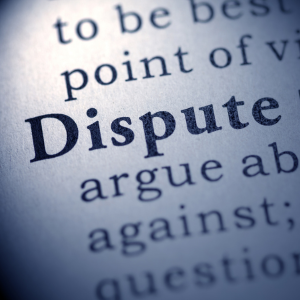
Understanding how HOA fee disputes are resolved is crucial for both buyers and sellers during the closing process of a real estate transaction in Newark, NJ. Typically, any outstanding homeowners association (HOA) fees must be settled before the transfer of property ownership is completed.
Disputes regarding unpaid HOA dues are generally addressed through negotiation between the parties involved, often facilitated by their respective real estate agents or attorneys. In some cases, title companies play a key role in ensuring all liens, including those from HOA fees, are cleared before closing.
The purchase agreement may outline specific terms for handling these disputes, potentially including an escrow arrangement where disputed amounts are held until resolution. Buyers must review the status of HOA accounts as part of their due diligence to avoid unexpected liabilities.
Sellers must ensure all fees are accounted for and disclosed accurately to prevent delays or complications during closing. By proactively addressing potential issues with HOA fees early in the transaction process, both parties can help facilitate a smoother closing experience in the Newark real estate market.
The Legal Implications of Unpaid HOA Fees at Closing
In Newark, NJ, real estate transactions, the legal implications of unpaid HOA fees at closing can significantly impact both buyers and sellers. When a property governed by a Homeowners Association (HOA) changes hands, any outstanding dues or assessments become a focal point of negotiation.
Failing to settle these obligations before closing can lead to breaches of contract or even litigation for sellers. Conversely, buyers must exercise due diligence to ensure all HOA fees are current; otherwise, they risk inheriting the seller’s debt and becoming liable for past-due amounts.
Title companies often require a status letter from the HOA verifying that the account is clear before finalizing the sale. If unpaid fees are discovered late, they may delay closing or necessitate escrow adjustments to cover pending liabilities.
Understanding these nuances is crucial for all parties involved to avoid unexpected financial burdens and ensure compliance with New Jersey real estate laws governing HOA fee responsibility at closing.
Navigating HOA Fee Payments in Newark, NJ: What Buyers Need to Know
In Newark, NJ, real estate transactions, understanding HOA fee responsibility at closing is crucial for prospective buyers. Homeowners Association (HOA) fees are recurring costs that contribute to maintaining common areas and amenities in a community.
When purchasing a property in Newark, buyers must know how these fees are handled during the closing process. Typically, the seller is responsible for any outstanding HOA dues up to the closing date, while the buyer assumes responsibility after taking possession of the property.
However, buyers should review the sales contract carefully, as some agreements may stipulate different arrangements regarding prorated fees or special assessments. Additionally, understanding the HOA’s governing documents can provide insight into future financial obligations and potential fee increases.
Buyers should work closely with their real estate agent and attorney to ensure all HOA-related payments are accounted for and documented adequately at closing. This thorough approach will help avoid any unexpected financial burdens related to HOA fees in Newark’s competitive real estate market.
Common Misunderstandings About HOA Fees in New Jersey
One common misunderstanding about HOA fees in Newark, NJ, real estate transactions is the assumption that these fees are solely the seller’s responsibility until the closing date. However, this isn’t always the case.
Both buyers and sellers must clearly understand how homeowners association (HOA) fees are prorated at closing. Another misconception is that all HOA fees cover the same amenities and services across different communities in New Jersey, when these can vary significantly depending on the specific development’s rules and regulations.
Some buyers also mistakenly believe that HOA fee increases cannot occur after they purchase a property. Yet, associations can raise fees as needed to maintain community standards. Misunderstandings often arise regarding special assessments; potential buyers might not realize they could be responsible for upcoming evaluations even if they were approved before their purchase.
It’s crucial for both parties to closely review the terms of the real estate contract and any associated HOA documents to clearly define responsibility for these costs and avoid unexpected financial obligations post-closing.
How HOA Fees Impact Your Real Estate Investment

Understanding how HOA fees impact your real estate investment in Newark, NJ, is crucial during property transactions. Homeowners Association (HOA) fees are recurring costs that can significantly influence the overall financial landscape of owning a property.
These fees cover essential services such as maintenance of common areas, landscaping, and sometimes utilities or amenities like pools and gyms, thereby preserving the community’s aesthetic appeal and functionality. When closing on a property in Newark, it’s essential to factor in these fees, as they directly affect your investment’s profitability and cash flow.
Potential buyers should thoroughly review the HOA’s budget and financial statements to assess any potential for fee increases or special assessments that could arise after purchase. Understanding these dynamics ensures informed decision-making, safeguarding your investment from unexpected expenses arising from mismanagement or underfunded reserves within the HOA.
Additionally, being aware of how these fees compare with those of similar properties can provide insight into the community’s value proposition, impacting long-term appreciation potential.
Budgeting for HOA Fees as a New Homeowner
When purchasing a home in Newark, NJ, new homeowners must understand the implications of HOA fees and how they impact the overall budget. Homeowners Association (HOA) fees are mandatory payments many residential communities require to cover shared amenities and maintenance costs.
As you prepare for closing, it’s essential to factor these fees into your financial planning to avoid unexpected expenses. In Newark’s real estate market, HOA fees can vary significantly depending on the community’s offerings, such as landscaping, security services, or recreational facilities like pools and gyms.
To effectively manage your finances, calculate the annual cost of these fees and incorporate them into your monthly housing budget alongside mortgage payments, property taxes, and insurance. Being proactive about understanding your HOA fee obligations will help you maintain financial stability as you settle into your new home in Newark.
Preparing Financially for Unexpected Increases in HOA Dues
When purchasing a property in Newark, NJ, it’s crucial to financially prepare for potential increases in HOA dues, which can unexpectedly affect your budget. Homeowners’ associations often adjust fees to cover maintenance costs, improvements, or unexpected repairs within the community.
Buyers should carefully review the HOA’s financial documents and meeting minutes to understand past trends of fee increases. Consulting with real estate professionals familiar with Newark’s market can provide insights into typical HOA fee adjustments in the area.
Setting aside a financial buffer specifically for these potential changes is wise. This preparation ensures you’re not caught off guard by sudden hikes in association dues after closing your real estate transaction.
If you’re a homeowner looking to avoid the burden of rising HOA fees, you may want to consider alternatives such as cash sales. Companies that sell your home for cash in Newark, NJ, and nearby cities offer a hassle-free way to offload your property quickly, without the complications of ongoing dues or listing delays.
Comparing HOA Fee Structures Across Different Communities
In Newark, NJ, understanding the nuances of HOA fee structures is crucial for anyone involved in real estate transactions. Homeowners Association fees can vary significantly across different communities, impacting overall property costs and responsibilities at closing.
Some communities may have comprehensive HOA fees that cover a wide range of amenities such as landscaping, snow removal, and shared facility maintenance. In contrast, others might charge additional assessments for these services. Buyers must carefully examine the breakdown of HOA fees to determine what is included and what extra charges might arise post-closing.
Moreover, it’s essential to consider how frequently HOA fees are adjusted within each community, as some associations may increase fees annually to cover rising maintenance costs or fund large-scale projects. Understanding these differences is critical for prospective homeowners in Newark to accurately anticipate their financial obligations and ensure a smooth real estate transaction process.
Essential Things to Consider Regarding an HOA Before Buying a House
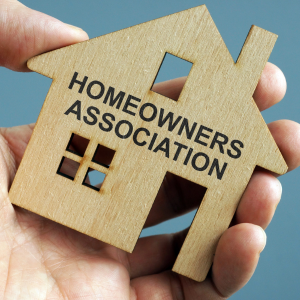
While looking at homes for sale in Newark, NJ, it’s essential to inquire about homeowner associations (HOA) and their fees, especially at closing. Buyer’s due diligence should include asking pertinent questions that determine HOA fee liabilities during property transfers.
Ask first about the regular monthly dues and special assessments, if any. It’s essential to know what maintenance services are covered, such as landscaping, security, and cleaning.
Home buyers and investors should also ask about unresolved litigations with the HOA and whether unresolved litigations that would impose burdensome future assessments are pending. Obtaining copies of the recent budgets and financial statements will answer the questions about the reserve funds for unplanned expenditures.
Also, determine whether there are rental restrictions, modification guidelines, or other policies that could change your long-term goals for the property. It is critical to understand the method of transferring HOA obligations to avoid costs and complications post-acquisition.
Are HOA Dues Paid at Closing?
In Newark, NJ, real estate transactions hinge on who is responsible for HOA fees at closing and how they are handled during the settlement process. HOA dues are usually settled at closing, but for some HOA dues, there may be proration.
Outstanding fees associated with the homeowners’ association are usually treated as a closing cost by the seller, while new dues from the closing date are the buyer’s responsibility. Both parties must double-check the closing disclosure statement to ensure that all expenditures concerning HOA dues are accurately tracked.
Towards the proration of HOA dues, Newark real estate transactions often allow room for negotiation, which helps mitigate disputes in the lay-by period and expenses booked after the settlement date. Because of this, potential buyers must discuss these matters with their agents and attorneys to ensure that there are no hidden fees or dues beyond what is disclosed, enabling intelligent budgeting and financial planning.
Who is Responsible for Closing Costs in New Jersey?
In Newark, NJ, it is of utmost importance for buyers and sellers to know who is responsible for closing costs for a real estate transaction. In New Jersey, closing costs usually include several necessary expenses that also comprise the responsibility of the HOA fee at closing.
In Newark, NJ, the purchaser shoulders most of the closing costs, which include the mortgage origination fees, title insurance premiums, property taxes, and homeowners’ insurance on a prepaid basis. Notably, sellers have their own set of costs for which they are liable.
These can include real estate agent commissions and transfer taxes. Moreover, in Newark real estate transactions concerning HOA fee responsibility at closing, it is customary for the seller to remit association dues before the closing date.
If you want to avoid the high out-of-pocket costs often associated with traditional home sales, working with cash home buyers in New Jersey and nearby cities can be an innovative solution. These buyers usually cover closing costs and buy homes as-is, making the process faster and more convenient for sellers.
Who Is Responsible for Paying HOA Fees?
In Newark, NJ, real estate deals require both parties to understand who is responsible for HOA fees at closing. In most cases, the seller bears the burden of settling any homeowners association (HOA) fees that are payable up to the closing date.
This ensures no pending payments are cleared before the property is handed over. During contract discussions, both parties need to agree on how these fees will be apportioned.
Once the buyers take possession of the property, it is important to remember that they are responsible for all HOA fees, including all associated recurring charges. Buyers should always be provided with the HOA documents so that they are well-versed in the financial obligations that may come later, including any “special” assessments that may be put in place.
Collaboration between buyers, sellers, and their real estate professionals could facilitate a seamless transfer of HOA fee responsibilities during closing in Newark’s bustling real estate environment.
Who Is Responsible for the HOA Transfer Fee: Buyer or Seller?
As with any real estate transaction in Newark, NJ, both buyers and sellers need to know who is responsible for the HOA transfer fee and how to pay it by closing. The purchase agreement usually notes to which party the cost has been assigned.
As we have seen, there is a default position of one of the parties assuming the burden to pay the HOA transfer fee. It is essential to mention that the parties should also have an obligation to follow the terms, check the document for clauses that may require them to have certain obligations about the issue, and seek expert advice from a real estate agent.
Of course, in Newark, NJ, traditions always allow either side to shoulder the burden as feasible based on marketing conditions or bargaining. In this respect, buyers must understand what they may incur as costs when the HOA fees come due at closing.
On the other hand, sellers should be mindful of what obligations, rights, duties, responsibilities, costs, expenses, and fees they may have to bear to mitigate their financial position from the sale and the lower-than-expected net proceeds due to multiple unanticipated costs. A proper grasp of these factors helps foster smooth transactions for both sides without unwanted delays at the closing table resulting from last-minute revelations regarding who’s holding the bag with the HOA fees.
Looking to sell your house? Whether you want to avoid complicated repairs or a lengthy process or just want a simple sale, Better Cash Buyer can help. We provide a cash offer, take care of every step, and ensure a smooth experience. Want to get started or have some questions? Reach out to us at (347) 386-2549 for a risk-free offer. Let’s get started!
Helpful Newark Blog Articles
- Selling Your Inherited House In Newark, NJ
- Understanding HOA Fee Responsibility At Closing In Newark, NJ
- How To Sell Your Parents’ House Fast In Newark, NJ
- Selling A House With Asbestos In Newark, NJ
- Tax Guide For Selling Your Home In Newark, NJ
- Newark, NJ, Neighborhood Map
- Free Things to Do in Newark, NJ
- Best and Worst Neighborhoods in Newark, NJ
- Fun Facts About Newark, NJ
- Best Newark, NJ Property Managers
- Newark, NJ Closing Costs Calculator
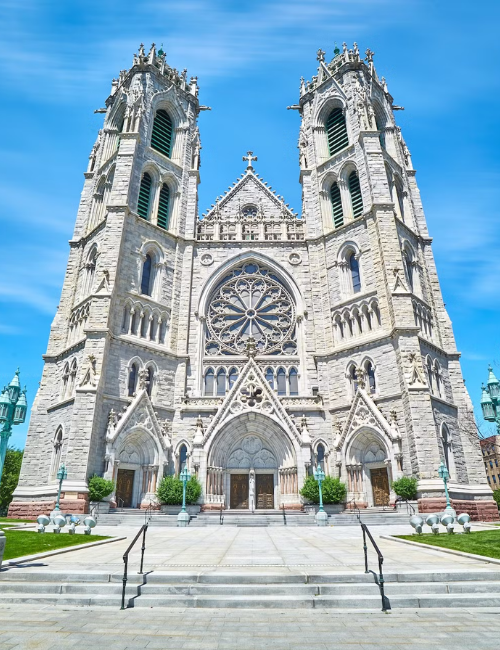
| HOMEOWNERS ASSOCIATIONS | HOMEOWNER ASSOCIATIONS | HOMEOWNERS ASSOCIATIONS (HOAS) | HOMEOWNER ASSOCIATIONS (HOAS) | NEW JERSEY’S | INSURANCE COMPANY |
| INSURANCE AGENCY | CONDOMINIUM | LOAN | LENDING | PRICE | REDFIN |
| LISTING BROKER | REALTORS | INFORMATION | MONEY | LENDERS | INSPECTION |
| DEBTS | HOME APPRAISAL | APPRAISAL | INTEREST | CREDIT | REALTY |
| HOME INSPECTION | TITLE SEARCH | NEW YORK | NYC | MANSION TAX | FAIR HOUSING |
| GOAL | DOWN PAYMENT | CREDIT-CHECK | CREDIT SCORE | CONSUMERS | U.S. |
| AMERICA | TECHNOLOGY | TABLE OF CONTENTS | MORTGAGE INSURANCE | MANSION | LOAN-ORIGINATION |
| LOAN ORIGINATION | PRIVATE MORTGAGE INSURANCE | JERSEY CITY | DISCOUNT POINTS | MORTGAGE POINTS | DEED |
| DATA | COMPANY | BANKING | BANK | ALL RIGHTS RESERVED | ARE CLOSING COSTS IN |
| REALITY |
